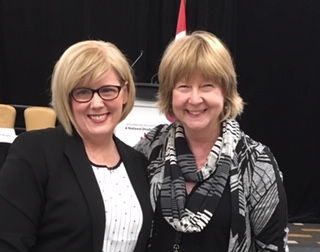Communication Access Now (CAN) Ontario representatives met with Toronto Transit Commission (TTC) Wheel-Trans managers in August. It was a very positive and constructive meeting. We discussed that, although most Wheel-Trans travellers have noted great improvements over the past few years, there continue to be some barriers for people who have speech and language disabilities. One of our CAN Ambassadors identified some of these barriers, including the following:
- Some drivers pretend they understand my speech – even when they don’t. They don’t want to say “I don’t understand” so they just agree. I always know, so it’s better to be honest.
- Some drivers and Call Centre staff don’t seem to know how to ask me to clarify my speech if they don’t understand – like asking me to repeat, or saying back what they think they heard and get feedback from me. Even confirming how I say “yes” and “no” would help in some cases.
- If I have to talk to the Call Centre staff, they sometimes want you to talk fast…and then it gets even harder. I need to be given time.
- Attitudes and assumptions are a big barrier – here as with other places in life. Many people think if you have speech problems, you have cognitive problems. This is not the case.
The TTC Managers were very open and felt that this was a good time to look at these barriers and some solutions as the TTC is currently undergoing a full program review, including review of eligibility, training, technology used, etc.
We asked that TTC include us in their consultations and plans for drafting policies and procedures, for staff training, and for the review of all types of communication – for the Call Centre staff and for drivers. It was enlightening to hear that the website and alternate ways of accessing the Call Centre, as well as computer systems will likely be included in this plan to achieve improved accessibility for all. Hopefully TTC will ask the program review consultants to call upon us at Communication Disabilities Access Canada (CDAC) while they are in the review process, prior to making any decisions in these areas. They have contacted us following the meeting and we are discussing incorporating some of the CAN e-learning modules into regular staff trainings.
How you can help?
The TTC is holding a public forum to discuss accessibility of conventional TTC and door-to-door (Wheel-Trans) public transit services in Toronto.
Date: Wednesday, September 16, 2015
Location: Allstream Centre, Exhibition Place – 105 Princes’ Boulevard, Toronto
One-on-One Discussions: 6 p.m. to 7 p.m.
Open Public Forum: 7 p.m. to 9 p.m.
For more information, please visit 2015 TTC Public Forum on Accessible Transit.
CDAC encourages individuals with speech and language disabilities and their supporters to attend the forum and to voice the accessibility concerns facing this population. Feel free to share the information available in our resources Make Your Telephone Services Accessible and Make Your Transportation Services Accessible when discussing accessibility with TTC.
Working together, we can improve accessibility of transit for all individuals, including those with speech and language disabilities.
